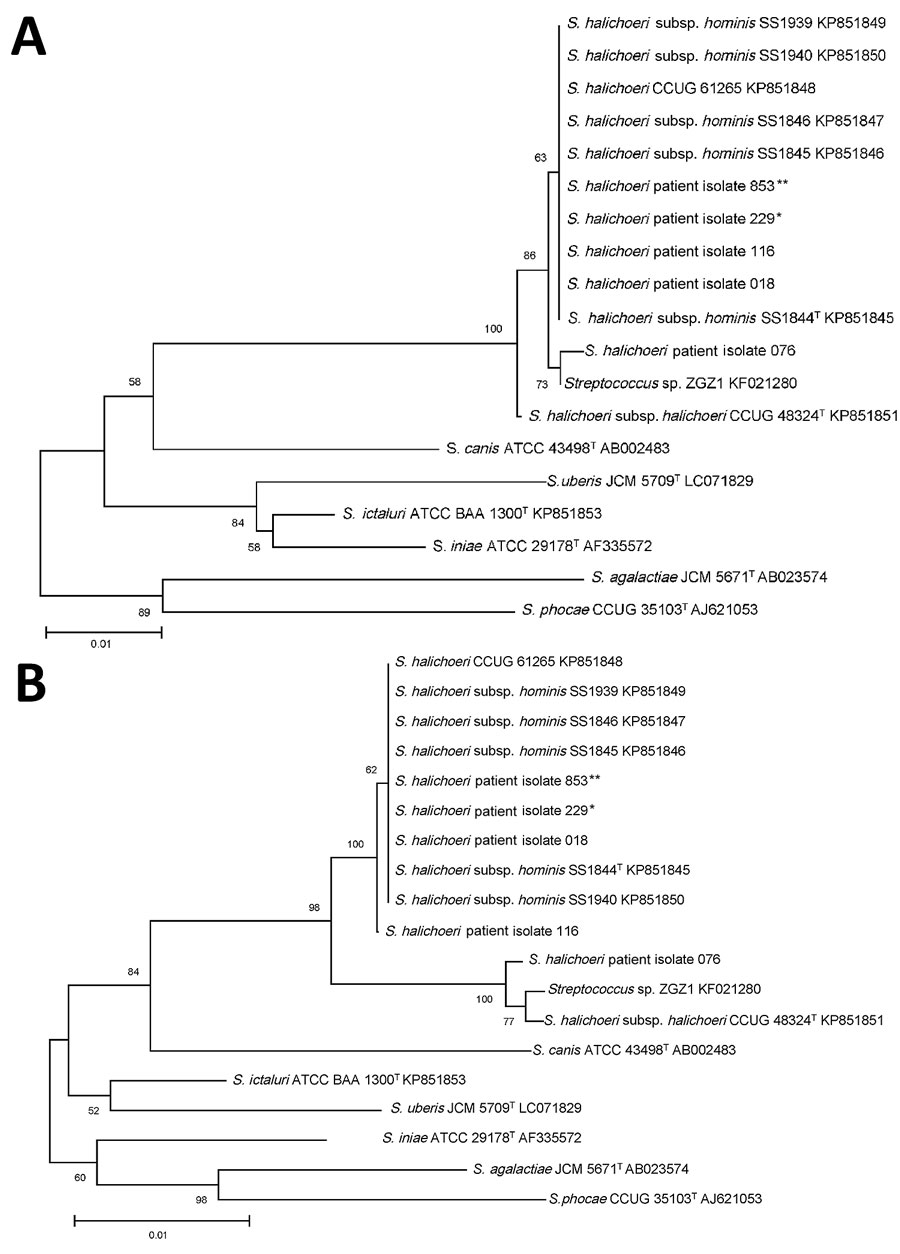Volume 27, Number 5—May 2021
Synopsis
Clinical Laboratory Perspective on Streptococcus halichoeri, an Unusual Nonhemolytic, Lancefield Group B Streptococcus Causing Human Infections
Figure 1

Figure 1. Phylogenetic trees based on 16S sequences of clinical and type strains of Streptococcus halichoeri and related taxa from study of human infections caused by unusual strains of S. halichoeri, United States. A) Partial sequences (496 nt); B) full-length sequences (1,434 nt). We generated alignments using ClustalW (http://www.clustal.org), trimmed them to the length of the shortest sequence, and computed neighbor-joining trees with bootstrap analysis with 1,000 replicates using MEGA X (https://www.megasoftware.net). Isolates from case-patients are represented with asterisks (*patient 1; **patient 2). T indicates type strains.
1These authors contributed equally to this article.
Page created: March 15, 2021
Page updated: April 20, 2021
Page reviewed: April 20, 2021
The conclusions, findings, and opinions expressed by authors contributing to this journal do not necessarily reflect the official position of the U.S. Department of Health and Human Services, the Public Health Service, the Centers for Disease Control and Prevention, or the authors' affiliated institutions. Use of trade names is for identification only and does not imply endorsement by any of the groups named above.